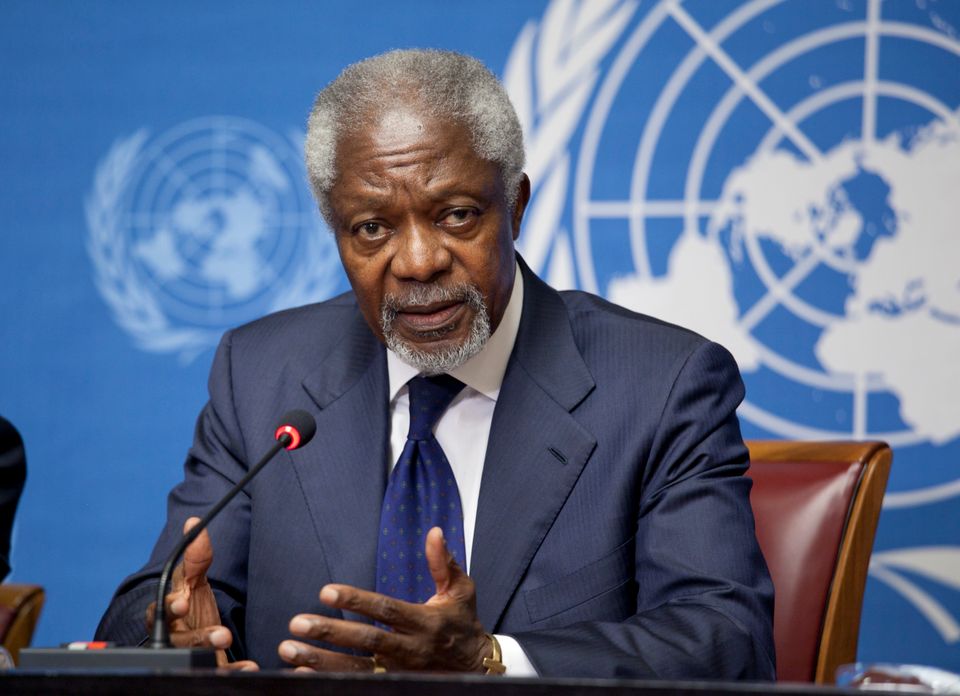
What Kofi Annan Understood about Syria
In the days since the death of former UN Secretary General Kofi Annan, many have written touching tributes about his historic tenure at the United Nations and his role in mediating peace in Kenya and East Timor. Annan’s role as the UN Special Envoy for Syria, however, has received comparatively little attention. Annan was the first diplomat to hold the job, appointed in February 2012, in the early days of the conflict. A man known for his tenacity and willingness to work diligently on seemingly intractable conflicts, Annan lasted less than six months in the position. While Annan’s six-point peace plan met with some initial success, including a brief cease-fire in April, his attempts at mediation were ultimately in vain. The Assad government, which had initially agreed to the plan, stopped cooperating, and the international community, specifically the UN Security Council, was divided and distracted. While Annan dedicated his career to the promise of diplomacy, on Syria, he understood that his position as Envoy was an impossible task. As he stated in his resignation, “As an envoy, I can’t want peace more than the protagonists, more than the security council or the international community, for that matter.”
Upon his resignation, Annan posed the question, “Is ours an international community that will act in defense of the most vulnerable of our world and make the necessary sacrifices to help?” In the intervening six years, the answer has been a resounding no. The UN Security Council has repeatedly failed Syria, and continues to do so. In 2012 Annan believed that the international community possessed the ability to create real change in Syria, if leaders chose to pursue it. His sentiment remains true to this day. The United States, the European Union, Russia, and regional powers can prevent civilian attacks in Idlib, protect refugees from involuntary returns, influence an equitable reconstruction, and prioritize justice in negotiations. Not only have these actions not been taken, however, but the entire UN peace process has been hijacked in favor of Russian-led talks in Astana.
In his position as UN Special Envoy, Annan quickly understood that he had no choice but resign when none of the relevant actors were committed to serious engagement on a just and inclusive peace process. Today, Syrians are still waiting for peace and for the “necessary sacrifices” from their leaders and leaders around the world that Annan eloquently called for six years ago.
For more information or to provide feedback, please contact SJAC at [email protected] and follow us on Facebook and Twitter.